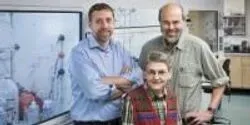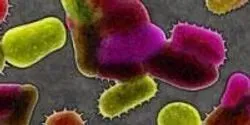human health

The world owes a debt of gratitude to Simon Fraser University (SFU) biologist Regine Gries. Her arms have provided a blood meal for more than a thousand bedbugs each week for five years while she and her husband, biology professor Gerhard Gries, searched for a way to conquer the global bedbug epidemic.

Instead of an apple, could a hug-a-day keep the doctor away? According to new research from Carnegie Mellon University, that may not be that far-fetched of an idea.

Women exposed to high levels of fine particulate matter specifically during pregnancy—particularly during the third trimester—may face up to twice the risk of having a child with autism than mothers living in areas with low particulate matter, according to a new study from Harvard School of Public Health (HSPH). The greater the exposure, the greater the risk, researchers found. It was the first U.S.-wide study exploring the link between airborne particulate matter and autism.

A common over-the-counter drug that tackles pain and fever may also hold keys to a longer, healthier life, according to a Texas A&M AgriLife Research scientist. Regular doses of ibuprofen extended the lifespan of multiple species, according to research published in the journal Public Library of Science-Genetics.

Breakthrough in genetic engineering could advance study of arrhythmias and heart conduction, say researchers at NYU Langone Medical Center.

A recent study published in the BMJ came to the conclusion that, "exaggeration in news is strongly associated with exaggeration in [academic] press releases."

Wayne State University part of international collaborative research team on study.

Cloudy tap water may have a greater effect for California’s rural immigrants than merely leaving behind a bad taste, according to a new policy brief released by the Center for Poverty Research at the University of California, Davis.










